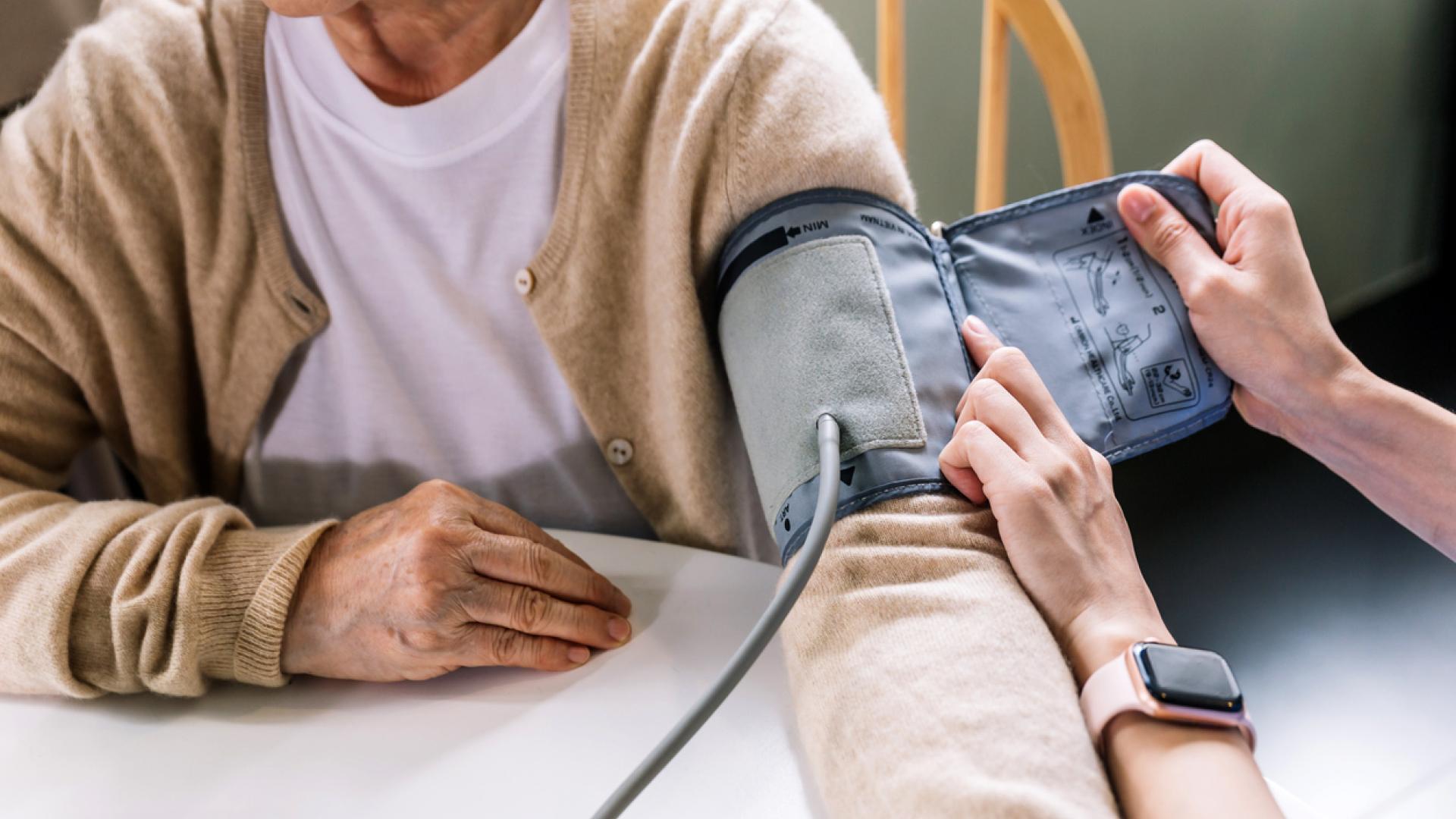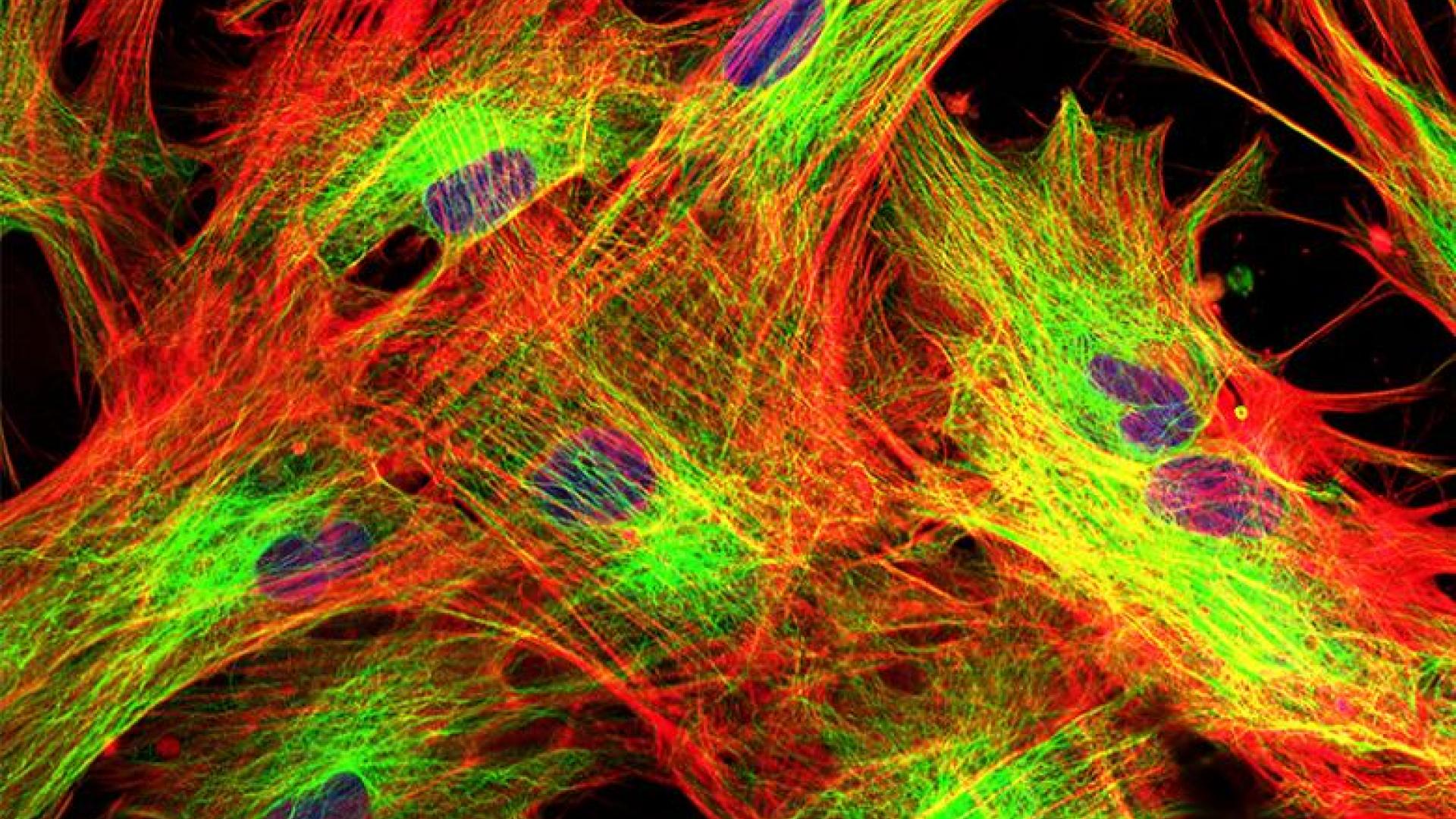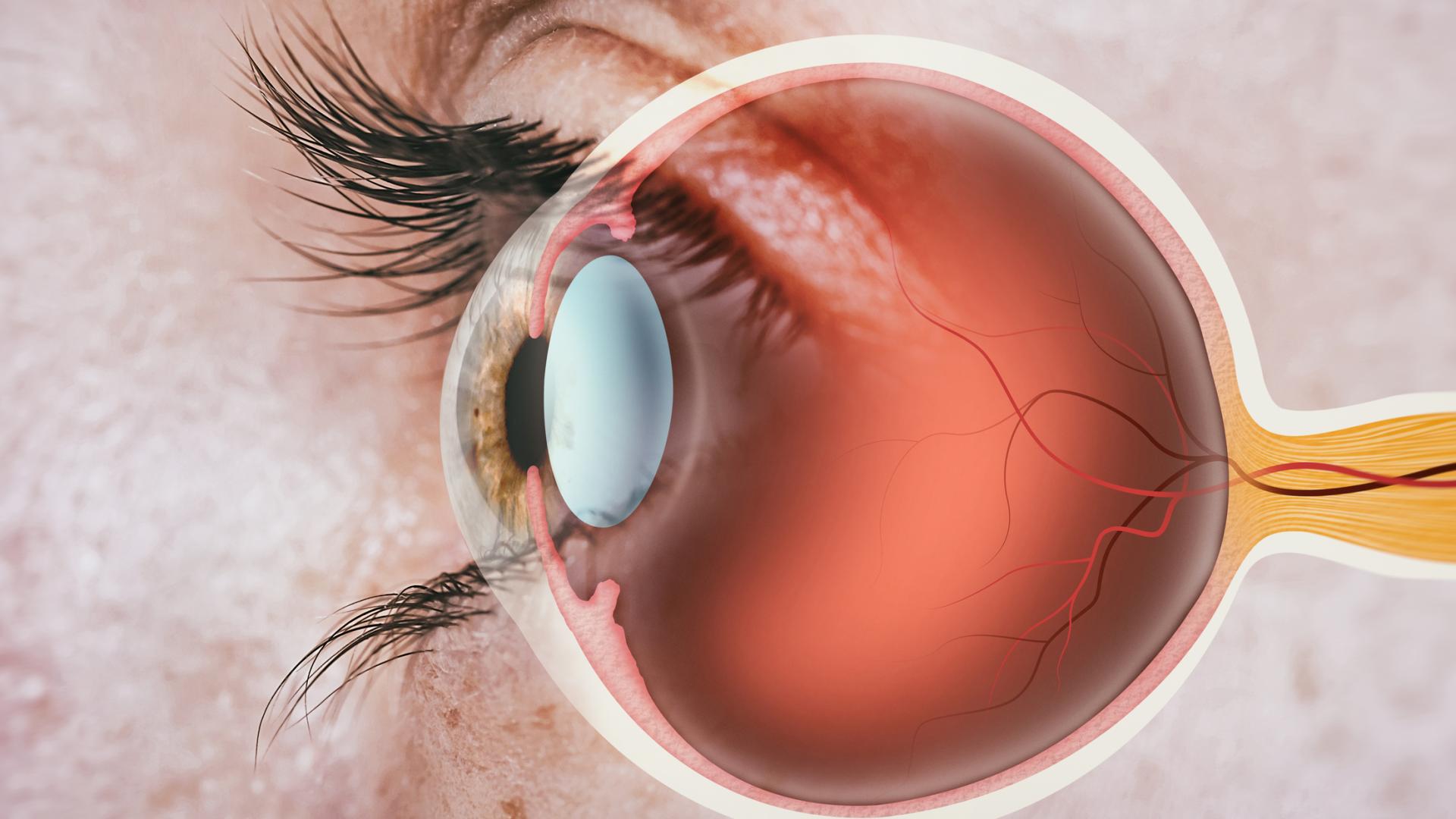
The relationship between blood pressure and glaucoma risk is complicated. Learn why both high and low blood pressure may increase the risk for this eye disease.
As with many aspects of our health, moderation is key with regard to blood pressure levels and risk of glaucoma. Very high blood pressure is not good for glaucoma because it may raise eye pressure; however, moderate to very low blood pressure is also a problem because it is important for the optic nerve to receive enough blood flow.
High Blood Pressure and Glaucoma
Can high blood pressure (or hypertension) cause glaucoma? The research is not conclusive. Doctors know that increased blood pressure results in increased eye pressure, possibly because high blood pressure increases the amount of fluid the eye produces and/or affects the eye’s drainage system.
However, even though there is a positive relationship between blood pressure and eye pressure (for example, increasing blood pressure results in increasing eye pressure), the effects are not very large. It is estimated that blood pressure needs to increase by 10 mmHg (millimeters of mercury) in order to raise the eye pressure 0.26 mmHg. In addition to increasing eye pressure and the possible risk of glaucoma, it is important to keep in mind that high blood pressure can also cause damage to the retina and result in hypertensive retinopathy, which is damage to the retina and retinal circulation.
Finally, of course, high blood pressure increases the risk of heart disease and stroke, so it is crucial to treat.
Low Blood Pressure and Glaucoma
On the other hand, having low blood pressure (or hypotension) can be a risk factor for developing glaucoma, as several large studies have shown. Specifically, ocular perfusion pressure, which is essentially the difference between blood pressure and eye pressure, is a risk factor for glaucoma diagnosis.
Ocular perfusion pressure can occur in patients who naturally have low blood pressure but also for patients with high blood pressure who are overtreated with medications. Given current recommendations for blood pressure control, which have become more strict over time, overtreatment is a real possibility.
Another time when low blood pressure may become an issue is when blood pressure naturally dips at night. Both blood pressure and eye pressure vary over the course of the day, and in situations where blood pressure drops and eye pressure increases overnight, damage to the optic nerve could be occurring.
Talk with Your Doctors
Because both hypertension (high BP) and hypotension (low BP) are glaucoma risk factors, it is important to have a conversation with both your internist or primary care physician and your treating ophthalmologist if you have concerns about your blood pressure.
It is important to tell your ophthalmologist your medical conditions, including whether you have high blood pressure and if you are taking blood pressure medications.
This is particularly important with regards to your glaucoma treatment because one of the commonly used glaucoma medications is a topical beta-blocker eye drop. Systemic (oral) beta-blockers are used to treat high blood pressure. In addition to lowering blood pressure, a beta-blocker side effect is decreased heart rate. Therefore, simultaneous use of both a systemic beta-blocker and a beta-blocker in eye drop form could potentially have unwanted side effects.
Another example is if you are a dialysis patient with chronic kidney disease, which can result from diabetes or high blood pressure, among other causes. During dialysis, blood pressure can fluctuate and dip, leading to low ocular perfusion pressure. If you are a dialysis patient with glaucoma, it is important to discuss your conditions with your kidney specialist and your ophthalmologist. There are, for example, ways that the doctor can adjust the dialysis protocol so that there is less risk to your optic nerve.
Overall, it is best to avoid extremes in our blood pressure, so that it is not too low and not too high. There is ongoing research to try to identify the exact relationship between blood pressure and glaucoma so that doctors can better guide their glaucoma patients.
About BrightFocus Foundation
BrightFocus Foundation is a premier global nonprofit funder of research to defeat Alzheimer’s, macular degeneration, and glaucoma. Since its inception more than 50 years ago, BrightFocus and its flagship research programs—Alzheimer’s Disease Research, Macular Degeneration Research, and National Glaucoma Research—has awarded more than $300 million in research grants to scientists around the world, catalyzing thousands of scientific breakthroughs, life-enhancing treatments, and diagnostic tools. We also share the latest research findings, expert information, and resources to empower the millions impacted by these devastating diseases. Learn more at brightfocus.org.
Disclaimer: The information provided here is a public service of BrightFocus Foundation and is not intended to constitute medical advice. Please consult your physician for personalized medical, dietary, and/or exercise advice. Any medications or supplements should only be taken under medical supervision. BrightFocus Foundation does not endorse any medical products or therapies.
- Eye Pressure
- Risk Factors









